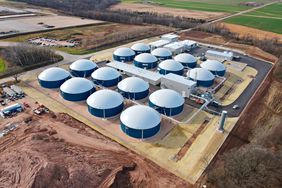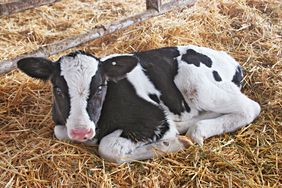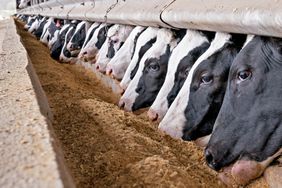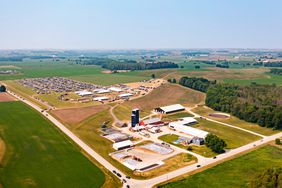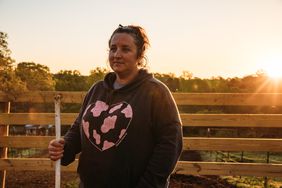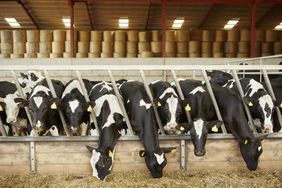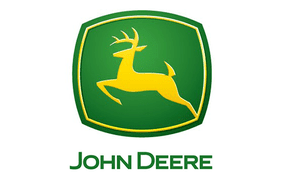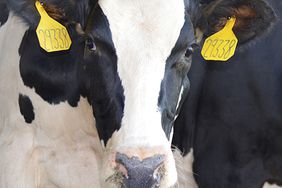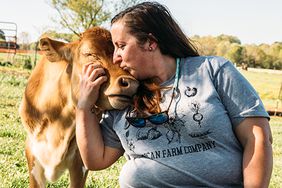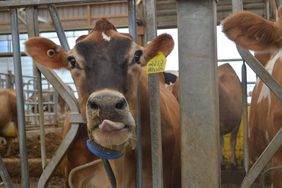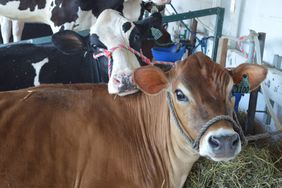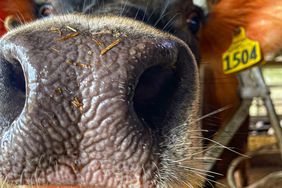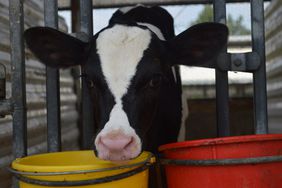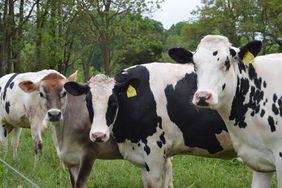:max_bytes(150000):strip_icc()/Lussier20portrait20final-2-2000-b4cea1913a064bf69693fe3c722e9359.jpg)
Growing up on a dairy farm, Kevin Lussier believed there was no better life. From learning how to drive a tractor to working cows with his parents, the young Lussier knew following in his parents' footsteps was a career he wanted to pursue.
Before he could, his parents had one stipulation — they wanted their son to get a college education. After earning a bachelor's degree in business management from Jacksonville University, Lussier, along with wife Shelby, returned to the family's dairy in May 2016.
- READ MORE: Say cheese!
"At the time, my family was milking a herd of about 650 Holstein and Jersey cows," he says. "To have another family join the operation, we were going to have to grow and diversify. Growing the herd was going to be about a $2 million investment."
Then an opportunity presented itself. The owners of a neighboring dairy and creamery were ready to retire. Because the couple had no successor, they approached the Lussiers to gauge their interest.
In January 2020, the young couple acquired the equipment and cattle and began making Gouda, Havarti, Swiss, and Tomme cheese with milk from 80 Jerseys under their new brand — Hawthorne Creek Creamery. They rent the facility where cheese is made with plans to eventually purchase it.
"The previous owners have been instrumental in helping us get started, allowing us to do this in stages," Lussier says.
SF: You started a business when the world was shutting down. What impact did that have?
KL: When we purchased the business, our main goal was to scale it. We have a 60-day aging process for our cheese. We made our first cheese on January 15. It wasn't available for sale until March 15, and Florida shut down two days later. At the time, we were selling wholesale to food service. While it put a halt on the business, it was really a blessing. I know that sounds funny, but it gave us a chance to learn the business and understand how to make cheese at a high level.
With Shelby's marketing background, we were able to realize what outlets were out there beyond food service and start diversifying our sales. While other farms in the state make cheese, none are permitted under USDA inspection. To be able to work with distributors and retailers, we must hold these permits and be inspected monthly. This gives us virtually no competition in the market. Our biggest selling point is that we're local, which is what a lot of people want. Today, our handcrafted cheese is available at nearly 300 grocery stores in Florida, as well as at hawthornecreekcreamery.com.
SF: How does what you feed cattle play into the quality of milk?
KL: If our cows don't produce high-quality milk, we are not going to be able to produce high-quality cheese. That starts with how we care for our cows. Feed plays a huge role, especially when you're selling cheese. Our toughest challenge is that forages change so rapidly throughout the year. We use a winter variety of oats and rye, which is good, high-protein feed. Once we get into August, when it's hot and raining all the time, some of that grass starts to go backwards a little. We really must play with other commodities to make sure the cows are getting the nutrition they need to produce high-quality milk.
SF: What are your goals for growth?
KL: I want to grow to a point that's sustainable for us as a family, but I don't want to get too big to where we're losing quality. If we lose quality, there's no reason to grow anymore. To have a long-term effect in this market, we must continue to deliver quality cheese.
Currently, about 20% of our milk is used to produce cheese. The rest is sold to our local co-op. I would like to get to a point where all our milk goes toward cheese production. The real goal is to not be so reliant on a milk check. With the volatility we've seen in dairy, we really need to get to a point where a milk check matters, but it doesn't matter so much that it affects everything we do. I'm hoping we can get there by producing cheese.
Background
After graduating from college, Kevin Lussier and wife Shelby returned to Hawthorne, Florida, to farm with his parents, Matt and Linda Lussier. He oversees production for the family's 650-head dairy. While learning the day-to-day operations, the young couple were presented with an opportunity to acquire a neighboring dairy and creamery. Rebranding the business, they created Hawthorne Creek Creamery where they make four cheeses with milk from 80 Jersey cows.
